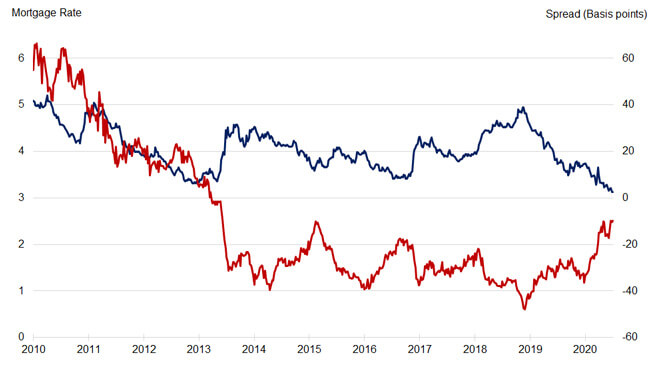Jumbo Loan: Just How to Get Larger Home Funding
Jumbo Loan: Just How to Get Larger Home Funding
Blog Article
Discovering the Advantages and Qualities of Jumbo Loans for Your Next Home Acquisition Decision
As the actual estate market advances, comprehending the complexities of jumbo fundings ends up being increasingly pertinent for prospective property buyers considering high-value properties. To completely appreciate how big fundings can affect your home purchase strategy, it is necessary to discover their essential features and benefits in greater detail.
What Is a Jumbo Lending?

Jumbo loans are usually utilized by purchasers seeking to buy high-value buildings or homes in pricey markets. jumbo loan. Given the bigger amounts obtained, lending institutions commonly impose more stringent credit requirements, consisting of greater credit report, reduced debt-to-income ratios, and larger deposits. The rate of interest on jumbo financings might be a little greater than those on adjusting fundings, showing the enhanced danger for loan providers
Furthermore, the approval procedure for a big lending can be a lot more taxing and complex, as lenders require considerable paperwork to assess the debtor's monetary security. Recognizing these nuances is essential for prospective homeowners considering a big funding for their residential or commercial property financing requirements.
Secret Benefits of Jumbo Loans
One considerable advantage of jumbo loans is their capacity to finance higher-priced properties that surpass adhering car loan restrictions. This function makes them an attractive alternative for purchasers seeking to acquire deluxe homes or buildings in high-cost areas where costs commonly exceed traditional funding thresholds.
In addition, big loans commonly feature flexible terms and competitive rate of interest rates, allowing consumers to customize their financing to match their unique financial circumstances. jumbo loan. This flexibility can include alternatives for adjustable-rate home mortgages (ARMs) or fixed-rate loans, providing purchasers with the ability to handle their regular monthly payments according to their preferences
One more advantage is that jumbo loans do not need personal home loan insurance (PMI), which can substantially minimize the overall price of the finance. With PMI frequently being a significant expense for traditional fundings with reduced down repayments, preventing it can bring about significant financial savings gradually.
In addition, consumers of jumbo fundings generally have access to greater funding amounts, enabling them to buy residential properties that fulfill their way of living needs. This access equips customers to act decisively in affordable property markets, securing their desired homes much more effectively. In general, jumbo loans supply crucial benefits for those looking for to fund premium buildings.
Eligibility Needs for Jumbo Financings
Jumbo fundings include specific qualification needs that prospective debtors have to fulfill to protect financing for high-value residential or commercial properties. Unlike standard financings, which have set limits based on the conforming loan restrictions developed by government-sponsored entities, jumbo finances surpass these limits, necessitating more stringent requirements.

Furthermore, big fundings frequently necessitate a significant down payment, usually ranging from 10% to 20% of the purchase price, depending on the lender's policies and the consumer's monetary circumstance. Fulfilling these eligibility needs can place borrowers positively in safeguarding a big financing for their wanted property.
Contrasting Jumbo Car Loans to Standard Finances
Recognizing the differences between jumbo fundings and conventional fundings is vital for homebuyers browsing the premium property market. Big loans go beyond the adapting lending limitations established by the Federal Housing Money Firm (FHFA), which indicates they are not eligible for purchase by Fannie Mae or Freddie Mac. This results in various underwriting criteria and requirements for debtors.
On the other hand, standard fundings usually follow these limits, allowing for a more streamlined authorization procedure. Big lendings frequently call for stricter credit history, bigger deposits, and better financial reserves. For circumstances, while a standard funding might require a deposit of just 3% to 5%, jumbo car loans normally necessitate a minimum of 10% to 20%.
Rate of interest on big finances might vary from those of traditional financings, often being a little greater as a result of the boosted danger lending institutions presume - jumbo loan. The possibility for substantial funding can be advantageous for purchasers seeking luxury homes. Inevitably, understanding these distinctions allows buyers to make informed decisions, straightening their funding choices with their one-of-a-kind acquiring demands and monetary conditions
Tips for Safeguarding a Jumbo Funding
Safeguarding index a jumbo financing requires careful preparation and prep work, as lenders frequently enforce more stringent requirements compared to standard fundings. To boost your possibilities of approval, begin by checking your credit rating and addressing any concerns. A score of 700 or greater is normally liked, as it shows creditworthiness.
Following, collect your economic paperwork, consisting of income tax return, W-2s, and financial institution statements. Lenders typically require detailed evidence of revenue and possessions to evaluate your capacity to pay off the funding. Preserving a reduced debt-to-income (DTI) proportion is also critical; purpose for a DTI listed below 43% to boost your application's competition.
Furthermore, consider making a larger down payment. Several loan providers look for at the very least 20% down for jumbo lendings, which not just decreases your finance amount but also signals monetary stability. Involving with a knowledgeable home mortgage broker can provide indispensable understandings into the procedure and assist you browse numerous lending institution options.

Final Thought
In summary, jumbo financings present significant advantages for buyers seeking residential or commercial properties that surpass standard financing limitations. Comprehensive understanding of both the needs and advantages connected with big financings is necessary for making notified home acquisition decisions in a competitive actual estate market.
The interest rates on jumbo car loans may be a little greater than those on adjusting fundings, mirroring the increased threat for lending institutions.
While a conventional car loan might require a down payment of as little as 3% to 5%, big lendings normally require a minimum of 10% to 20%.
Rate of interest rates on jumbo loans might differ from those of traditional car loans, frequently being slightly higher due to the boosted danger loan providers assume.Protecting a big funding requires cautious planning and preparation, as loan providers frequently impose stricter needs compared to traditional loans. Several loan providers look for at least 20% down for helpful hints big finances, which not just lowers your financing quantity yet additionally signals economic security.
Report this page